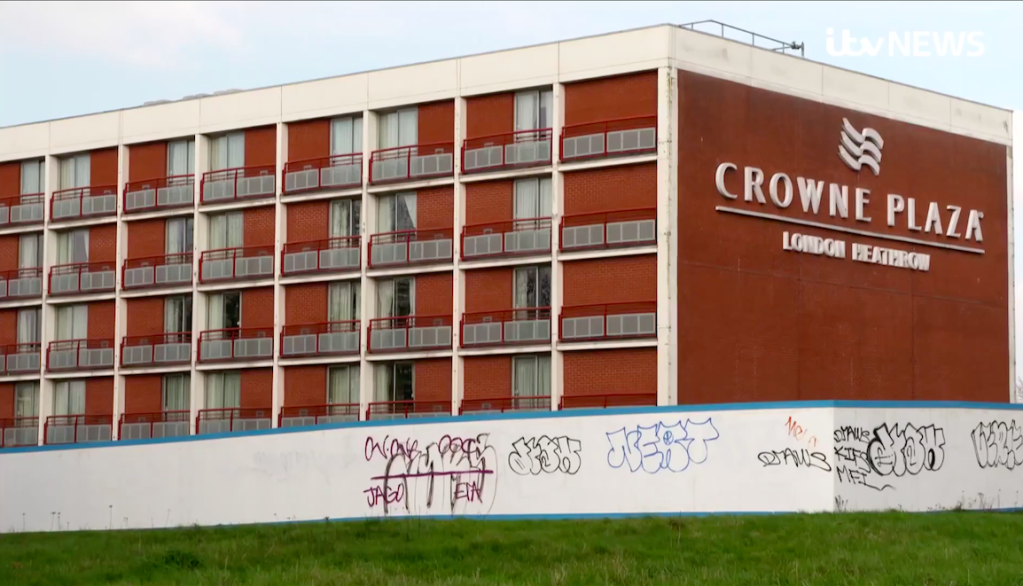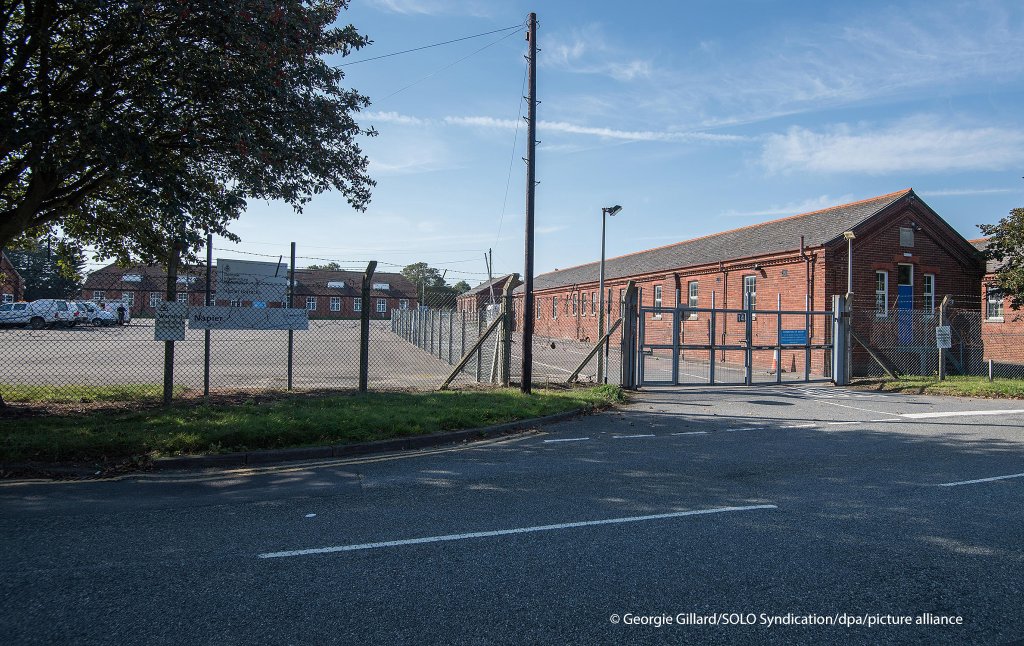A parliamentary report has found that the UK has 'squandered' billions of pounds on asylum housing due to "flawed" contracts, poor oversight, and overreliance on hotels, leaving the system expensive, unsuitable, and unpopular with local communities. The Home Office now faces pressure to reform the system, recover lost funds, and end the use of hotels by 2029.
The UK government has "squandered billions" of pounds on asylum accommodation because of "flawed contracts" and "incompetent delivery," according to a parliamentary report, published Monday (October 27), which accuses the Home Office of failing to manage costs or ensure proper standards.
The Home Affairs Committee, a parliamentary committee made up of MPs, which looked into the issue, found that the projected cost of asylum housing between 2019 and 2029 has more than tripled, from 4.5 billion pounds to 15.3 billion pounds (from around 5.1 billion euros to 17.4 billion), as a result of poor contract management and overreliance on expensive hotel accommodation. The findings increase pressure on Prime Minister Sir Keir Starmer, whose government has vowed to end the use of asylum hotels by 2029.
"Hotels went from a temporary stop-gap to the go-to solution for asylum accommodation, leading to a failed system that is expensive, unpopular with local communities and unsuitable for asylum seekers," the committee said.
UK 'heavily reliant' on hotels to house asylum seekers
As of June 2025, around 103,000 asylum seekers were being housed by the government, with just over 32,000 still living in hotels, about a third of the total. Though hotel use has declined since its 2023 peak, the Home Office remains "heavily reliant" on them, MPs said.

The report paints a picture of chaos inside the Home Office. It said officials neglected basic contract management, failed to issue penalties for poor performance, and have yet to reclaim millions in excess profits from private contractors. Two accommodation providers are still believed to owe the department significant sums.
"The government has only just started looking at claiming back those profits, auditing the accounts to see what is due back to the taxpayer," Dame Karen Bradley, who chairs the committee told BBC Radio 4's Today program. She said the failures stemmed from "a lack of leadership at a senior level" and "short-term, reactive responses."
UK vows to remove migrants with no right remain 'at a higher rate'
The Home Office’s reliance on large private contracts, many signed under the previous Conservative government, has drawn criticism from both Labour and opposition MPs. Housing Secretary Steve Reed accused the Conservatives of "pouring taxpayers' money down the drain," while Bradley said the department was "incapable of getting a grip on the situation."
In response, the Home Office said: "We have already taken action, closing hotels, slashing asylum costs by nearly one billion pounds (around 1.1 billion euros) and exploring the use of military bases and disused properties.

Prime Minister Starmer said he was "determined" to shut down asylum hotels. "I can’t tell you how frustrated and angry I am that we’ve been left with a mess as big as this by the last government," he said. Starmer added that the Home Office was now processing asylum claims "much more quickly" and removing those with no right to remain "at a higher rate than the best part of a decade."
Conservative leader criticizes removal of Rwanda deportation plan
Conservative leader Kemi Badenoch acknowledged that "mistakes had been made" by her party while in government but said Labour's decision to scrap the Rwanda deportation plan had worsened the situation. "Scrapping that scheme removed the deterrence, and meant that small boat crossings increased by 40 percent," she claimed.
The MPs' report also highlighted the strain on local communities, saying the uneven distribution of asylum accommodation has "put pressure on local services and created or exacerbated community tensions."

Protests against asylum hotels have taken place across the country, including in Epping, Essex, where an asylum seeker was charged with sexual assault earlier this year.
The committee urged the government to introduce a fairer, more locally managed system and to learn from past mistakes when replacing current contracts in 2029. It called for "a model that is more effective and offers value for money," with better communication between central government, councils, and local residents.
Despite acknowledging external challenges such as the pandemic and record small boat arrivals across the Channel, the committee concluded that the Home Office’s "chaotic response" showed it "has not been up to the challenge."
"The Home Office has repeatedly cut corners and wasted considerable amounts of taxpayers' money, and is once again under pressure to act quickly to bring down the use of the hotels," the report said.
The BBC published a long report into hotels being used as asylum seeker accommodation this summer. In it, they not only highlighted the problems faced by many asylum seekers at the properties, but also the huge waste of money, including that being spent on taxi bills, sometimes to transport asylum seekers hundreds of miles across the country.
